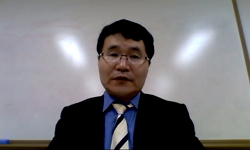History is a narrative composed by the communication of the present and the past, E. H. Carr once describing it as the endless dialogue. The relationship between the communication between the present and the past is primarily determined by the pertine...
http://chineseinput.net/에서 pinyin(병음)방식으로 중국어를 변환할 수 있습니다.
변환된 중국어를 복사하여 사용하시면 됩니다.
- 中文 을 입력하시려면 zhongwen을 입력하시고 space를누르시면됩니다.
- 北京 을 입력하시려면 beijing을 입력하시고 space를 누르시면 됩니다.
https://www.riss.kr/link?id=A82493450
- 저자
- 발행기관
- 학술지명
- 권호사항
-
발행연도
2010
-
작성언어
-
- 주제어
-
KDC
900
-
등재정보
KCI등재
-
자료형태
학술저널
-
수록면
385-410(26쪽)
- 제공처
- 소장기관
-
0
상세조회 -
0
다운로드
부가정보
다국어 초록 (Multilingual Abstract)
History is a narrative composed by the communication of the present and the past, E. H. Carr once describing it as the endless dialogue. The relationship between the communication between the present and the past is primarily determined by the pertinent side of the initiative. An appropriate historical discourse of every epoch is constructed by way of this dialogue. We, thus, may say that the history of the historiography has been basically developed by the changes in historical discourse. The periodization of the discourse is generally categorized into three parts: the pre-modern, the modern, and the postmodern ages. First, pre-modern historical discourse is well expressed by the famous words of Cicero, historia magistra viate (History is a teacher of human life). Historians then write their histories by way of criticizing the given present time according to the precedents of the past. Second, modern historical discourse came from the perspective of the Enlightenment, which viewed the past not as an example for the present but as an obstacle to the future`s progress. In other words, the progressivism of the modern historical discourse created the future-type project beyond history as the records of past; therefore, the idea becomes a grand narrative covering all of the different histories. The past loses its function of criticizing the present. This modern concept of history as a grand narrative allowed the modern time to be viewed as a revolutionary age. Third, postmodern historical discourse serves to excavate each history that has been buried by History as Grand Narrative. Although a scientific approach to history has reached a crisis, historical narratives have become popular, which reflects the the postmodern turn of historical discourse. On the other hand, as we all know, the postmodern historical discourse reverses the Marxian 11th thesis of Ludwig Feuerbach, as follows: People attempted to change the world in one way; however, in the postmodern age, various ways of thinking have become significant. If the modern era is considered as a revolutionary age, the postmodern era should be considered as the age of criticism. While the moral right, in their pre-modern historical criticism, belongs to the hegemony of the historical discourse, modern history in which historiography is the exclusive property of professional historians loses the function of history as the criticism of life, finally facing a crisis. Although historical science has confronted a critical stage, historical narratives have become popular through the return of micro-histories. If the past is a finished book, then history is rather related to a work that is written to criticize the past. Every man who critiques the past is a historian in the postmodern time. According to Alvin Toffler, the term prosuming describes the open source-like phenomenon of people producing what they consume. The producers of historical dramas and historical novelists critically reuse historical knowledge, and they become prosumers. In this prosuming age, historical criticism is expected to play major role. With the crisis of historical science, people may have an opportunity to become history critics but not historians. If so, we can apply the common phrase, opportunities are found in times of crisis.
동일학술지(권/호) 다른 논문
-
기획: 사회인문학의 시각으로 본 잡지 : 사회인문학과 비판적 잡지에 관한 몇 가지 생각
- 연세대학교 국학연구원
- 백낙청 ( Nak Chung Baik )
- 2010
- KCI등재
-
기획: 사회인문학의 시각으로 본 잡지 : 포스트-인쇄 시대에서의 전자 출판과 비판적 지성 -아시아-태평양의 관점에서-
- 연세대학교 국학연구원
- 마크셀던 ( Mark Selden )
- 2010
- KCI등재
-
기획: 사회인문학의 시각으로 본 잡지 : 중국의 사회변천에 대한 응답 -『개방시대』를 중심으로-
- 연세대학교 국학연구원
- 우총칭 ( Chong Ching Wu )
- 2010
- KCI등재
-
복잡계 이론에서 본 주역과 그 메타적 세계관 -동아시아적 사유원형의 모색을 중심으로-
- 연세대학교 국학연구원
- 김연재 ( Yon Jae Kim )
- 2010
- KCI등재





 KCI
KCI 스콜라
스콜라



